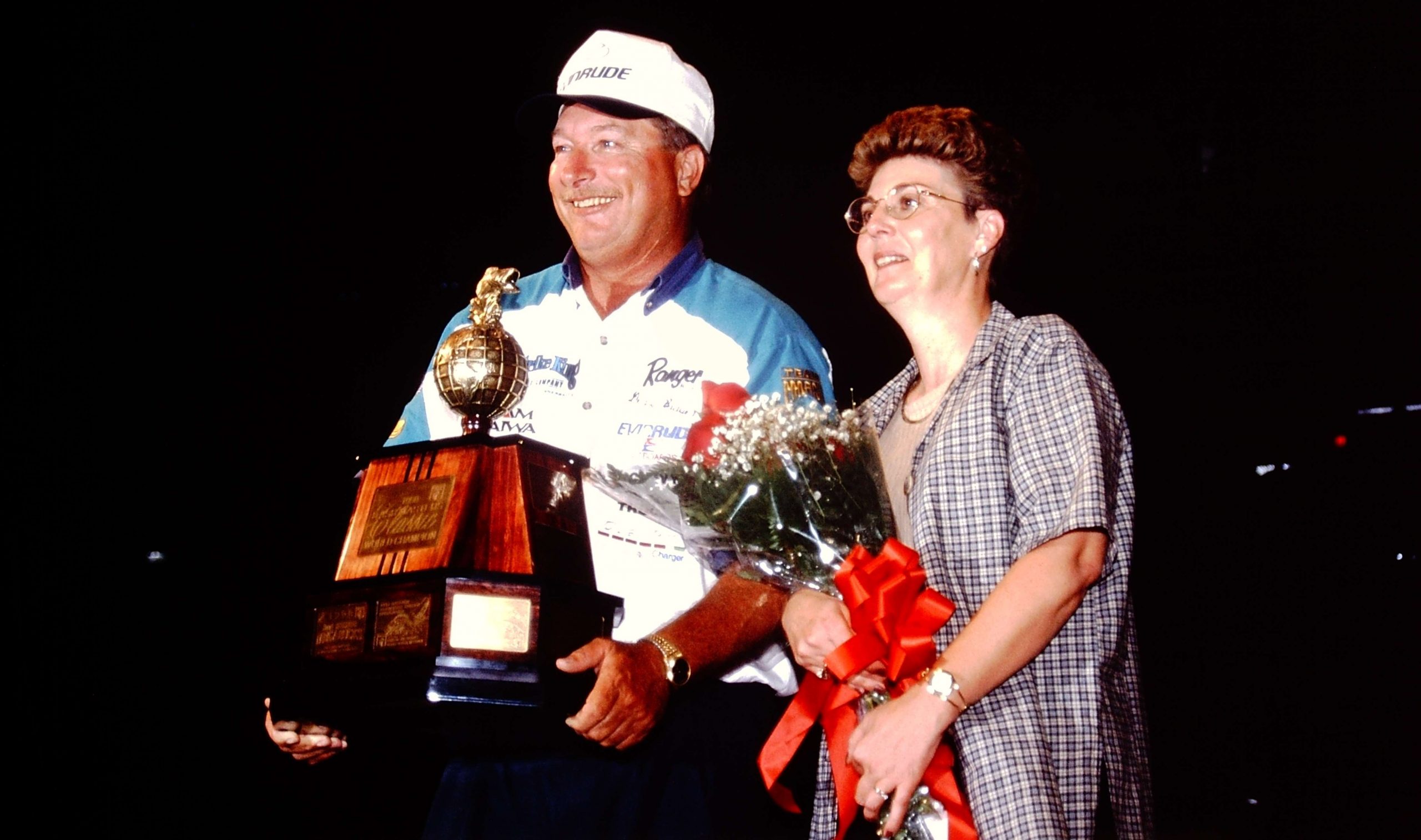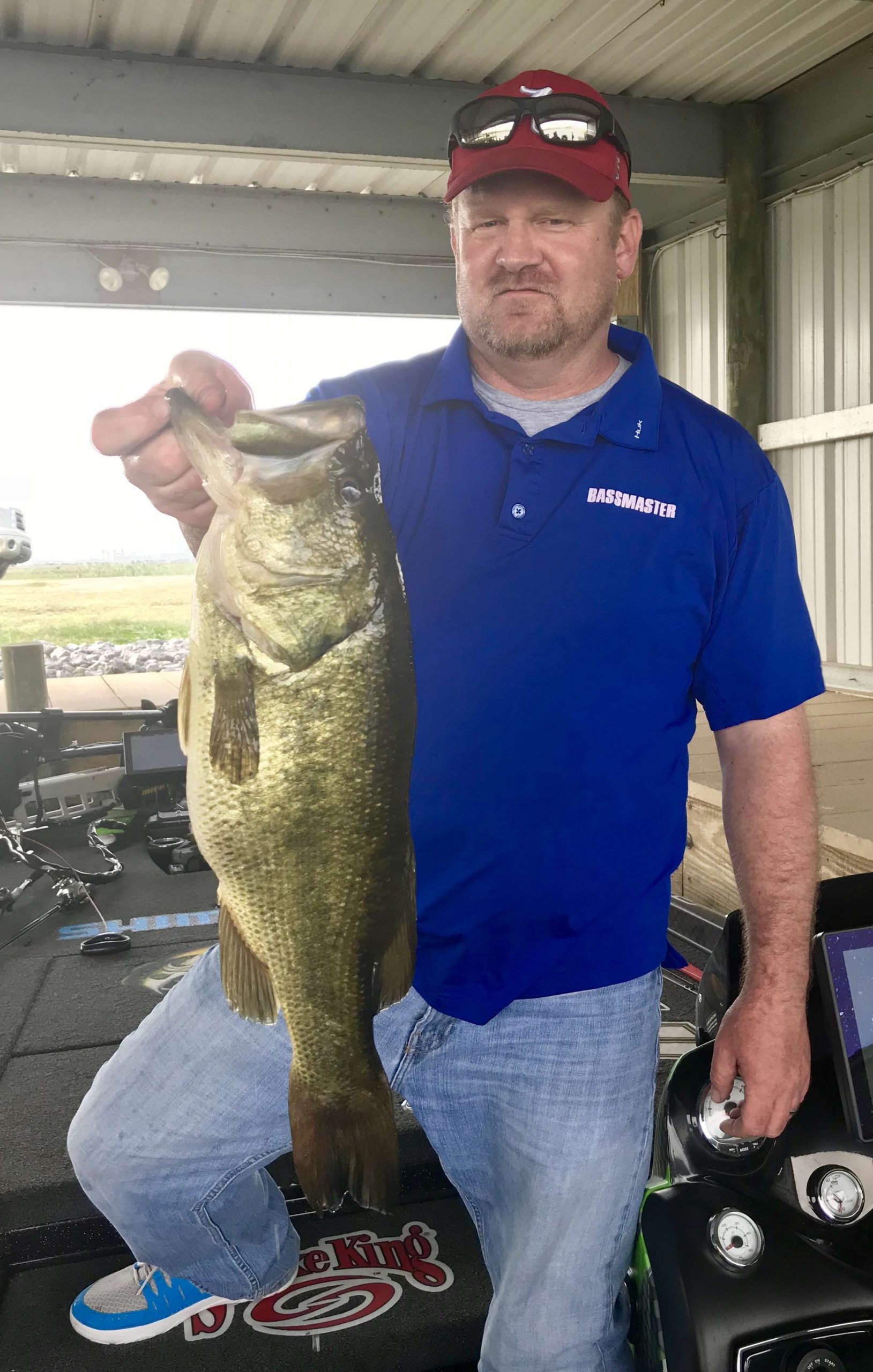
During the summer of 1997, I was in a period of professional transition.
I had already accepted a job as the outdoors writer for The Columbus Ledger-Enquirer newspaper in Georgia, but I was still finishing a two-week notice with my original employer in journalism, The Birmingham News. As luck would have it, the last event I covered for Birmingham was the 1997 Bassmaster Classic on Logan Martin Lake — and I had what I thought was a peach of an assignment.
There was an angler in the Classic that year named Dalton Bobo. He was an Alabama native who had qualified via the Federation Championship on the Red River in Louisiana.
When he returned home from Cajun country, he learned he had no vacation time remaining at the job he’d worked for 18 years as a mechanic — and his employer wouldn’t cut him any slack.
So he quit to follow his dreams.
My job, plain and simple, was to write an in-depth story about Bobo. I was supposed to follow his every move that week and tell what it was like for an average guy to compete in the Super Bowl of Professional Bass Fishing.
I was only 24 at the time — and looking back, I think I was only given the assignment because the folks who called the shots at The News didn’t really think Bobo had a chance to win.
But somebody forgot to send him the memo.
Bobo finished Day 1 in third place with 12 pounds. On Day 2, he caught another five-bass limit that weighed 9 pounds, 15 ounces. But he fell from third to fifth — partly because of a 4-ounce dead-fish penalty for a 3-pounder that expired about an hour before weigh-in.
It’s a bass that now holds a permanent spot in pro-fishing infamy.
By the final day, Bobo had become the darling of the home crowd inside the Birmingham-Jefferson Civic Center.
Missouri pro Dion Hibdon had just taken the lead with 34-13, and Bobo needed 13-3 to write the perfect ending to his fairy tale. Word from the boat yard was that he had it.
The crowd roared when they towed him into the arena, and Bobo made the most of his moment. He scanned the crowd, found his wife, Magaria, and gave her the thumbs-up sign, as if to say, “It’s in the bag.”
The best story of my life was already written inside my head.
“Hometown boy quits job, follows dream and makes the big time.”
He needed 13-3 to win and 13-2 to tie. But when he put his fish on the scales, the numbers read only 13-1.
He was an ounce short — and that dead-fish penalty had cost him riches that will never be quantified.
As a writer, if you have a heart at all, you can’t help but feel a little of what your subjects feel in a moment like that.
NBC reporter Bob Costas was in the Boston Red Sox dugout during Game 6 of the 1986 World Series against the New York Mets. The Sox appeared to have it won. But when it became obvious they were in the midst of the most infamous meltdown in sports history, Costas said he got a message from the production truck to “Get the hell out of there.”
I would have given anything to get the same message in that Classic moment — not because anything bad had happened to me, but because the pain on Bobo’s face made professionalism impossible.
Tears rolled down his face. His wife’s face. My face.
It was a moment that as much as any other, revealed the sheer power of the Bassmaster Classic.
I’ve seen that power from both angles.
I’ve seen Jay Yelas towed into the arena in 2002 as “Can You Take Me Higher?” by Creed blared with everyone knowing he had the title locked up.
I’ve seen Denny Brauer win a Classic at High Rock Lake in 1998 that just seemed to be destiny for an angler who was already on top of the pro fishing world.
I’ve seen the thrill of victory and the agony of defeat — and when they happen at the Classic, they both stick with you forever.

